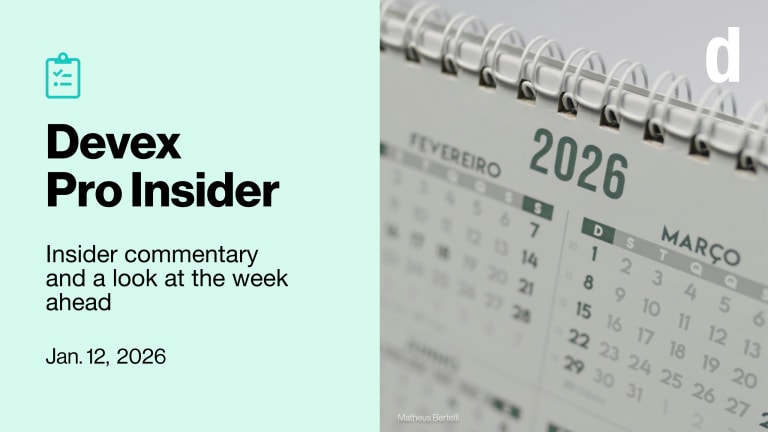
Just days after announcing that former U.K. Health Secretary Matt Hancock would become a special representative for the agency, the United Nations Economic Commission for Africa has withdrawn its offer.
The move follows a backlash to the Oct. 12 appointment, which caused widespread condemnation across the development sector.
“Mr. [Matt] Hancock’s appointment by the UN Economic Commission for Africa is not being taken forward. ECA has advised him of the matter,” Stephane Dujarric, UN Spokesman for the Secretary General, confirmed to Devex on Saturday.
Hancock, who had heavily shared news of the appointment on social media, blamed previously unknown regulations. “The UN have written to me to explain that a technical UN rule has subsequently come to light which states that sitting members of parliament cannot also be UN special representatives,” he said in a statement. “Since I am committed to continuing to serve as MP for West Suffolk, this means I cannot take up the position.”
But other sitting parliamentarians, including former U.K. Prime Minister Gordon Brown, have served as UN representatives. A UNECA statement, which has now been taken offline, also highlighted that the unpaid role was approved by the U.K. government’s Advisory Committee on Business Appointments.
Hancock had been asked by Vera Songwe, UNECA executive secretary to work on financial innovation and climate change. But many critics cited Hancock’s apparent lack of professional experience related to African economies and his track record during the COVID-19 pandemic as health secretary in the U.K., which recorded one of the highest death tolls in the world and saw Hancock mired in corruption allegations. Hancock resigned from the job after he was caught breaking social distancing laws while having an affair with an aide.
Devex’s questions to UNECA about the process surrounding Hancock’s appointment went unanswered.
“The sheer unseriousness of this appointment is insulting,” wrote Ken Opalo, an assistant professor in the Walsh School of Foreign Service at Georgetown University, on Twitter. “Personnel is policy. I hope the AU [African Union] and capitals across the continent see this for what it is.” He added that appointments “like these … erode policy autonomy, prevent long-term planning, and gobble up scarce time through the pursuit of costly harebrained pet projects.”
“This [appointment] is so tone deaf, beyond arrogant that they think we in Africa need Matt Hancock to help 1.3 BN people recover from the pandemic, when he couldn’t manage the one in the UK!! The definition of a colonial hangover. Decolonize aid - no, here’s Matty! I’m absolutely gobsmacked,” tweeted Ayoade Alakija, co-chair of the African Union’s African Vaccine Delivery Alliance for COVID-19.
“Personnel is policy. I hope the AU [African Union] and capitals across the continent see this for what it is.”
— Ken Opalo, assistant professor, Georgetown University’s Walsh School of Foreign ServiceIn a letter inviting Hancock to the position, Songwe wrote of Hancock’s “success on the United Kingdom’s response to the Covid-19 pandemic and the acceleration of vaccines that has led the UK [to] move faster toward economic recovery,” calling it a “testament to the strengths that you will bring to this role, together with your fiscal and monetary experience.”
Before entering politics, Hancock worked as an economist at the Bank of England, before being recruited by former U.K. Chancellor George Osborne and rising to become his chief of staff.
Hancock hinted at his role in an Oct. 8 column in the Evening Standard. “I’ve been thinking about pandemic recovery – and how we can use this moment to make sure all parts of the world recover. … I’ve wanted to work on this for a long time, and, well, now I have the chance,” he wrote.
Update, Oct. 18, 2021: This story has been updated to reflect developments in the news.






